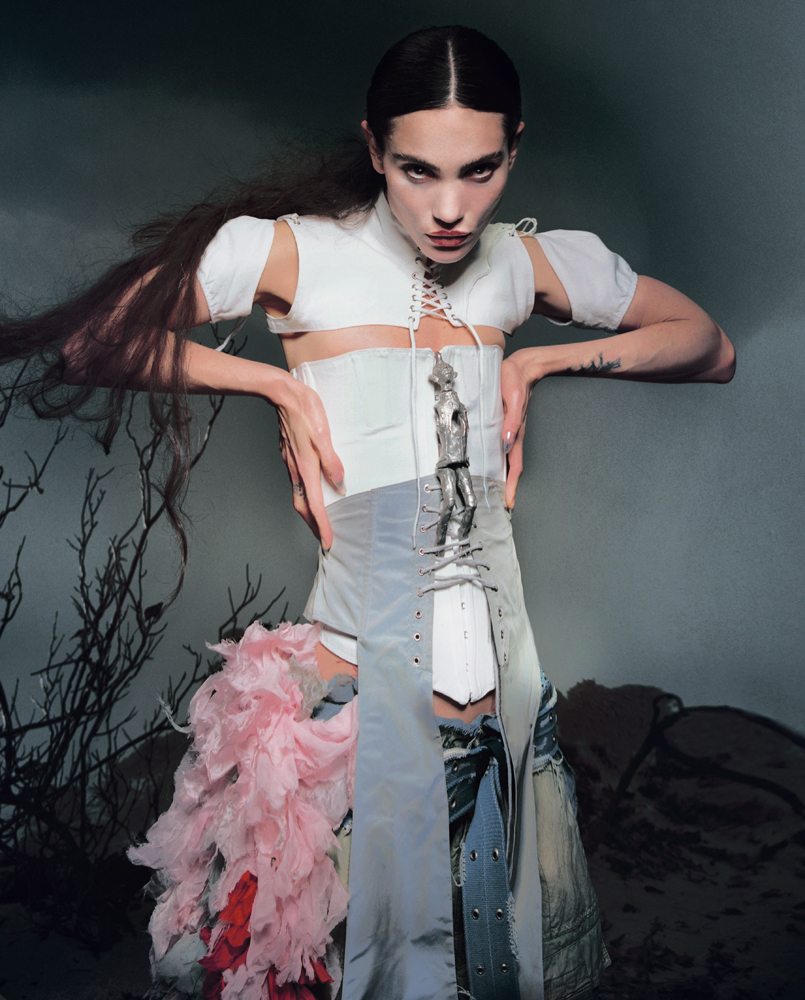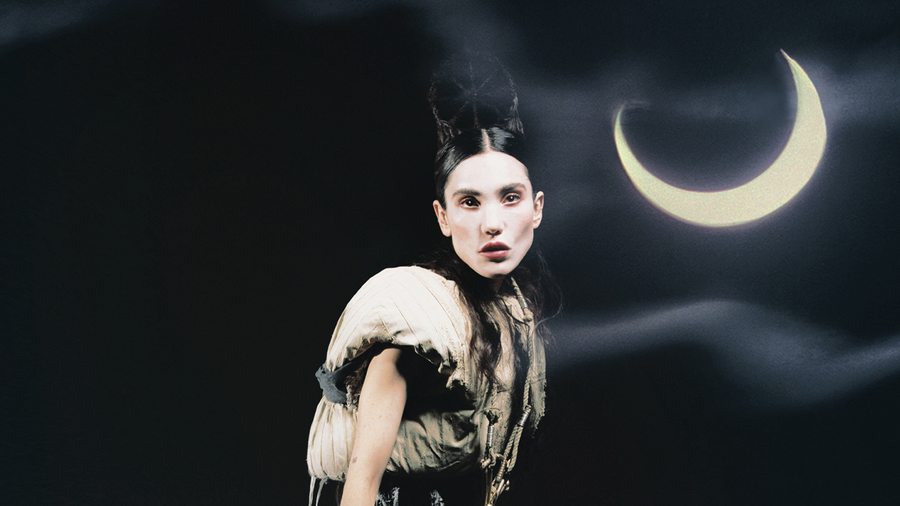

Hearing Daniela Lalita’s music, you immediately see a coven of witches gathered round a fire at full moon while wolves, owls and other night creatures cry out in the dark. For just like the sirens of myth and legend, this young, New York-based Peruvian singer-songwriter catches the listener in the nets of her polymorphic voice. Indeed the voice is Lalita’s principal instrument, as amply demonstrated on her first EP, Trececerotres, which was released last September – a voice that is at times a sensual cajoling murmur, at others a primitive guttural growl, but also attains a warlike screech worthy of a cavalry of Valkyries.
“Tenía Razón” music video by Daniela Lalita
Daniela Lalita, an artist who pushes musical limits with her voice
These are the ingredients of Lalita’s multi-genre sound, as bewitching as it is frightening, steeped in magic, melancholy and a touch of folklore.From a very young age, she perceived her voice as a means of expression that was as primordial as it was powerful. When communicating with each other, Lalita, her mother – who is herself a musician in several bands – and her grandmother often preferred sounds to words. Soon she began to use her voice in TV adverts, dubbing images of children or creatures – placed in front of a microphone between the ages of five and ten, she learned to mimic different emotions through her vocal acrobatics. Over the decade that followed, music evolved from a passion to a vocation, and when she moved to the US to study music technology at NYU, Lalita began composing under the guidance of her mentor, Morton Subotnick, a prominent figure on the electro scene. Pushing the experimental limits, she became fascinated by the Buchla, a synthesizer that allowed her to innovate yet further using her voice. “The moment I turned it on, I had the impression I was creating life,” she recalls. “It was as though each of its modules were a bodily organ.”




Lalita’s visceral relationship with the voice also comes through in her way of embodying it in images. Since childhood, she has felt music in her body: from the maternal living room, where she used to perform before an imaginary audience, to her stints as a model in New York or the years she spent dancing ballet, movement has allowed her to give form to the fire within her. A good example was her flamboyant 2017 performance Madre, which she wrote as part of her studies – a mix of fashion show, film projection and theatre, it caught the attention of her future label, Young. Her search for expressivity can also be seen in the way she stages herself on the cover of her EP, in a tight black dress that turns her into a spectral shadow, in contrast to the white, ethereal outfits she also likes to dress up in, which make of her an angel or a white lady from a gothic novel. Naturally, she develops this side in her videos too: for Tenia Razón, she appears with a group of women whose trance-like movements recall the choreography of Pina Bausch, while for Pisoteo she gesticulates alone like an animal guided by primal instinct.




This Lima native who grew up between the ocean and the jungle likes to remind us that, though na- ture remains her main source of wonder, there are many other refer- ences that inspire her, from religious rituals and iconography to cinema. Brought up on the fantastical artifice of 1920s silents, Lalita is also a big fan of horror movies, in particular the directors Dario Argento, Robert Eggers and Ari Aster. Her daily forays into painting, sculpture and costume making complete the rich “psychological landscape,” as she terms it, which this eternal perfectionist lives and works in, an environment into which she invites her listeners.




Trececerotres: a matriarchal EP filled with history and emotions
Released after five years of work, her first EP pays tribute to the matriarchal environment in which she grew up, its title, Trececerotres – “thirteen o three” –, being the number of the apartment where she, her mother and her grandmother shared so many moments and emotions. Sung in Spanish, each track evokes a character dreamed up in her imagination. The resulting five titles are at turns sinister, peaceful or danceable, their differences expressing themselves through tempo, the density of voices and the dissonant harmonies, as well as subtly Hispanicizing rhythms that at times recall Flamenco. Lalita plans to follow up the dark tone of this first EP, which was made almost entirely alone, with a first album that will be “a celebration filled with confidence and light.” To achieve this goal, she is preparing to travel to England, Spain and the Peruvian jungle in or- der to infuse her work with a new force: collaboration.
Trececerotres (Young), out now.


Réalisation : Natacha Voranger. Coiffure : Winnie Calvay. Maquillage : Manuel Montanari. Manucure : Magda S. avec les produits Lotion pour les Mains de Byredo. Set design : Gaston Portejoie. Retouche : Yoann Bouchard








